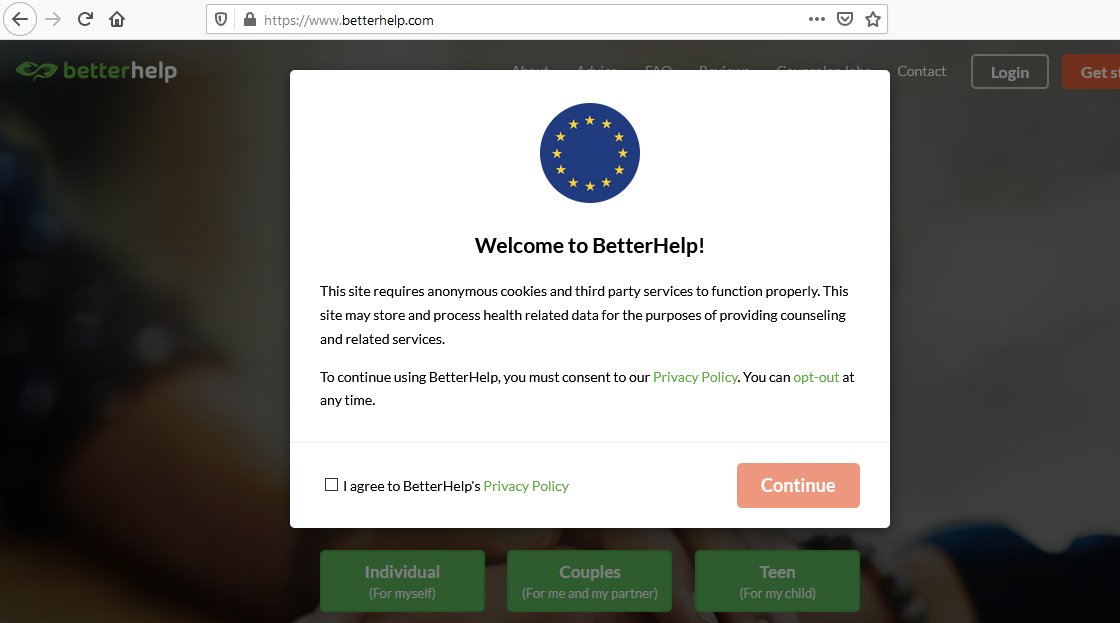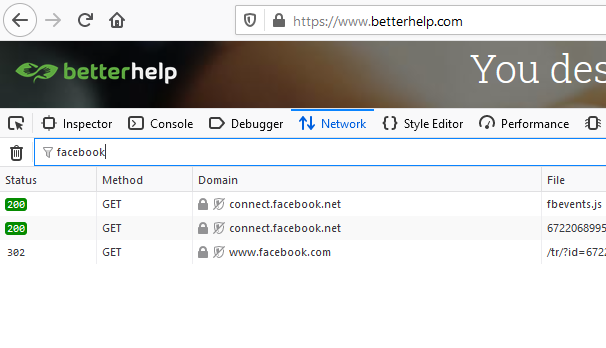
Interesting. Since I tweeted that I observed the mental health counseling platform BetterHelp sending personal data to FB, it updated its privacy policy & added a weird "you must consent to use our services" popup for EU users, including an extra checkbox.
betterhelp.com/privacy/
betterhelp.com/privacy/

I'm pretty sure it wasn't there when I visited the site in March, and when it shared data on me with FB according to 'Off-Facebook Activity':
Anyway, I guess the popup violates the GDPR because it makes the provision of the service conditional on consent.
https://twitter.com/WolfieChristl/status/1378313853017194498
Anyway, I guess the popup violates the GDPR because it makes the provision of the service conditional on consent.

After 'consenting', it still transmits 'PageView' data to FB, which is certainly not 'necessary' for the performance of the contract. Also, this is about sharing 'personal data' and not about 'anonymous' cookies.
If consent is not "freely given", it is not valid under the GDPR.
If consent is not "freely given", it is not valid under the GDPR.

According to my browser, the BetterHelp site also transmits data to many Google hosts including DoubleClick, Quora, Snapchat, Bing, LinkedIn, Pinterest and even to Taboola.
In their privacy policy, they name an EU data protection officer based in Spain:
betterhelp.com/privacy/
In their privacy policy, they name an EU data protection officer based in Spain:
betterhelp.com/privacy/
This could be a quick+easy GDPR case.
Beyond the legal implications, they may argue they want to reach out to people struggling with mental health, but I think it's completely irresponsible to disclose personal data about those who look for mental health help to data companies.
Beyond the legal implications, they may argue they want to reach out to people struggling with mental health, but I think it's completely irresponsible to disclose personal data about those who look for mental health help to data companies.
• • •
Missing some Tweet in this thread? You can try to
force a refresh





